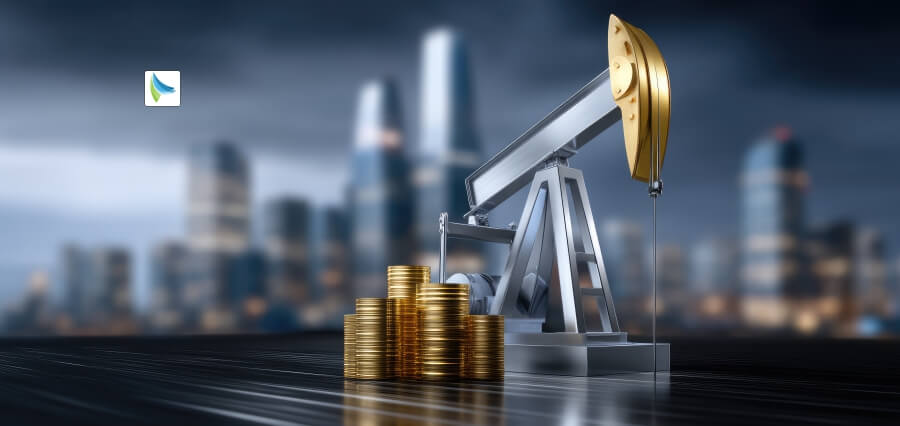Beyond Fossil Fuels
The worldwide energy ecosystem is changing its face with a grand shake-up of the very foundations of energy. The energy sector, which used to be the main culprit for the use of fossil fuels, is now seen as the driver of the sustainable, innovative, and resilient future of the planet. The executives across the sectors are turning the old ways upside down to find out how energy can be produced, shared, and utilized in a different manner– hence, creating an era in which energy is clean, the digital technologies are utilized, and the environment is protected in the long run.
Leaving fossil fuels behind is not that far-away dream anymore; it is a strategic and ethical necessity that shapes up the future of global progress.
Leadership in the Energy Transition
Creating the world of energy to come needs leaders with a clear vision of the future- people who dare to defy the traditional ways and trust a complete overhaul of the system rather than quick profits. Those leaders understand that sustainability is not a brake on the business but on the contrary, it accelerates it as a whole and particularly in the domain of innovation.
Green energy projects are on their funding list, also hydrogen and biofuel are not foreign to them. They are turning to clean technologies and mobilizing consumer choices towards clean options to power vehicles and adopt the circular economy. It is through embedding sustainability in the corporate strategy that they are managing the transition of energy from a limited resource to a renewable source that can support both people and the earth.
Additionally, the energy transition command leadership features beyond just adopting technology. It is about the raising of the relationship canopy between the states, business, and science. Those executives who top the charts in leading the transition are the ones who create linkages, thus identically the volunteers among the actors for the cleaner, cheaper, and more most accessible energy.
The Rise of Renewable Energy
Renewable energy sources are the ones that the whole change is based on Solar power, wind, hydroelectric, and geothermal are being considered allowable sources. Today, they are at par and sometimes better than fossil-fuel sources in cost and efficiency whereas in the past they were considered niche or economically unprofitable.
It is the modern technologies which have allowed the prices to be decreased while the dependability is increased. Nowadays, solar cells, windmills, and batteries for energy are not only getting more efficient but also opening the gates broader. The countries going down the road of renewable energy are reaping not only the benefits to the environment but also to their economy, such as increasing job opportunities.
Nevertheless, the switch to renewable energy sources goes along with a need for thinking differently about the resourcing of the energy grids. An energy network grid will need to be transformed into a smart and multifunctional system capable of handling local production and a fluctuating supply. The use of digital technologies like AI and IoT is very useful in dealing with the performance of a grid and energy balancing in the current period.
Innovation at the Core of Transformation
The step further than fossil fuels is indeed a technological revolution as well as an environmental one. On every step of the value chain of the energy industry innovation comes in to completely change the old ways of production and consumption.
One of the major technological challenges of hydrogen as an environmentally-friendly fuel is gradually overcome, as hydrogen is touted as the next clean fuel of the future mainly for heavy industries and long-distance transport. In addition, carbon capture, utilization, and storage (CCUS) serve as emission mitigators for the existing sources. New ideas in energy storage are widening the intervals and intensities at which renewable systems can operate, thus paving the way for the clean energy sources to be more sustainable and accessible.
Further, the leaders are not leaving any stones unturned by adopting digital transformation moves for the rapid change of the energy sector: data analytics, condition prediction, and smart automation are some of the tools that power producers can use to improve their performance, cut down their overheads and at the same time sustain environmental integrity.
The Road Ahead
The move towards a post-fossil fuel era is fraught with challenges. Among them are still energy storage issues, supply chain problems, and policy inconsistencies. Nevertheless, the progress direction curve is very clear. The world gets closer to a clean, sustainable energy future with every innovation, investment, and leadership decision.
The power redefinition leaders are those who realize that sustainability is not a current trend—it is the bedrock of long-term viability. They are mobilizing their organizations and ecosystems to be change-resilient, technology-driven, and capable of generating shared value for all stakeholders.
As the planet shifts to energy systems that are cleaner and smarter, the leaders endowed with foresight and integrity will be the ones writing the next chapter of global power. Those who realize that real energy leadership is not about dominance over limited resources but rather the bravery to leave a sustainable legacy for future generations will be the ones holding the keys to the future.













